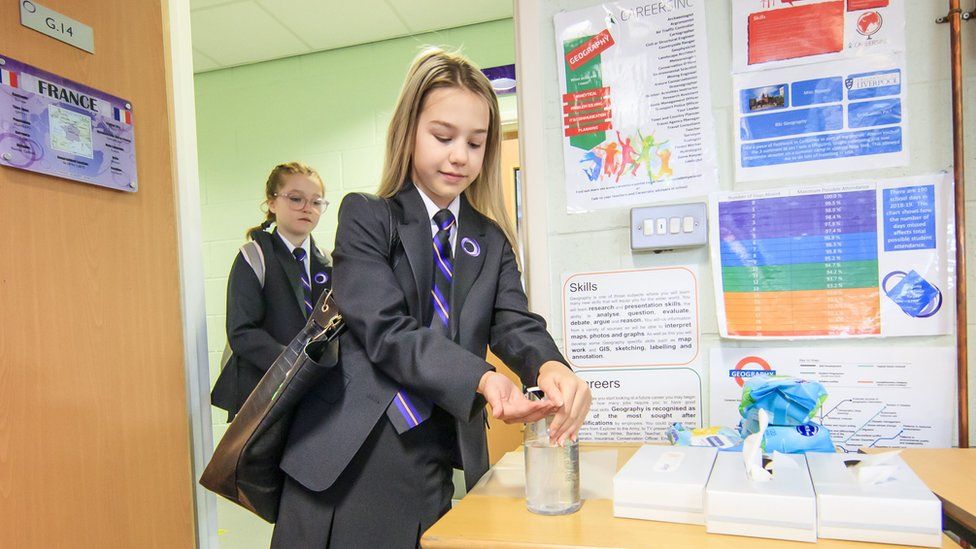Covid: Number of positive isolating pupils unknown in England
- Published

The government is not monitoring how many Covid cases in England are being prevented by sending pupils home from school to self-isolate.
This is despite the huge disruption to education caused by the policy.
Currently 279,000 children are at home because they have had close contact with an infected person in school.
The government said the policy is helping to curb the spread of the virus, but scientists said it was impossible to tell without the data.
Research suggests children, particularly younger ones, are less likely to transmit the virus if infected.
But the approach used by schools means that for every positive case, 20 other pupils on average are being asked to self-isolate for 10 days.
Ministers have indicated they want to see the system replaced in time for the start of the new school year in the autumn.
Trials have been carried out to see if rapid testing of close contacts can be used instead of self-isolation.
Head teachers' leader Paul Whiteman said schools needed to be told how alternative arrangements would work, and how safety would be maintained for all members of the school community.
'Potential risk'
Prof Robert Dingwall, of Nottingham Trent University, said the lack of data on who tested positive during self-isolation meant the benefit the policy was having in return for the cost to education was unclear.
And given most adults had been vaccinated, and children remained at very low risk, he said there was no reason to even introduce testing in the autumn as a replacement for automatic self-isolation.
"I don't see why we can't get back to normal in September and children stay at home if they are sick," Prof Dingwall said.
"There are growing levels of natural immunity building up in children anyway, and we know schools are not big drivers of transmission."
Dr Julian Tang, an expert in virus, at the University of Leicester, said treating Covid like flu and other respiratory viruses was perhaps the logical step as society learned to live with the virus.
"We don't impose any further restrictions for other viruses - we could do the same for Covid," he said.
His only concern would be for potential risk of "long Covid", Dr Tang added.
A government spokeswoman said: "We are aware that a minority of children are experiencing disruption as a result of self-isolation at the moment, which is why the health secretary and education secretary are working to get education back to normal as quickly as possible."
- LOOK-UP TOOL: How many cases in your area?
- SCHOOLS: When will they reopen?
- TEST AND TRACE: How does it work?
- COVID IN SCHOOL: What are the risks?
- LOCKDOWN LEARNING: What are the BBC's lockdown lessons?